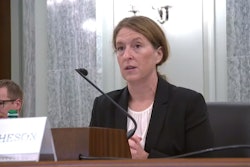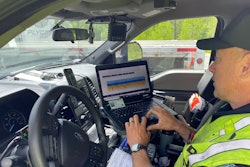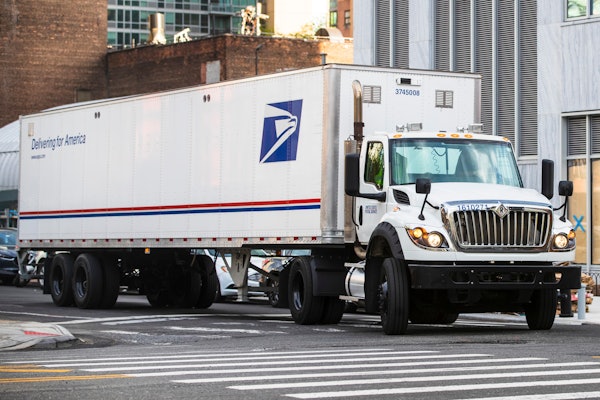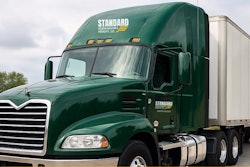Trucking news and briefs for Friday, Dec. 8, 2023:
Bipartisan bill would cut red tape for TSA credentialing programs
A bill has been introduced in the House of Representatives that would cut redundant fees and background checks for workers applying to multiple Transportation Security Agency-managed credentialing programs, such as the Transportation Worker Identification Credentials (TWIC) and the program for hazmat endorsements.
The so-called "Transportation Security Screening Modernization Act" would allow workers to apply existing valid background checks to multiple TSA programs rather than having to have a new background check when applying for each program.
The bill was introduced by Reps. Garret Graves (R-Louisiana) and Adam Smith (D-Washington), along with Reps. Mark Green (R-Tennessee), Michael Guest (R-Mississippi), Salud Carbajal (D-California), and Dina Titus (D-Nevada).
“I’ve heard from many transportation workers in my district who have had to spend a significant amount of time and money to keep their required credentials up to date,” Smith said. “The legislation we introduced would create a more streamlined application and renewal process, reducing unnecessary hurdles for transportation workers, a crucial workforce in our economy.”
The bill does not make any changes to the back-end security assessment conducted on individual applicants, ensuring that applicants must undergo the same level of review as they do under current law. It simply modernizes the consumer-facing applicant process to reduce the burden on transportation workers who must maintain more than one TSA credential.
The bill has received support from more than 150 associations, Smith said, including the American Trucking Associations, numerous state trucking associations, the Teamsters union and more.
Similar legislation was previously introduced in the House in 2022, but it never made it to a vote on the House floor.
DAT launches new fuel card
DAT Freight & Analytics on Thursday introduced the DAT One Fuel Card, powered by OTR Solutions, offering savings, expense management tools and no in-network transaction fees.
 Effectively, DAT One Fuel Card users can reduce operating costs by 7 cents or more per mile, totaling more than $6,000 in annual savings per truck, DAT said.
Effectively, DAT One Fuel Card users can reduce operating costs by 7 cents or more per mile, totaling more than $6,000 in annual savings per truck, DAT said.
Carriers can access the DAT One Fuel Card through the OTR Solutions mobile app on Google Play and Apple’s App Store. It makes managing fuel expenses easy with instant card funding options, card-level transaction reports and fraud mitigation tools.
Other card benefits, according to DAT, include:
- No transaction fees at in-network locations, including TA Petro, Speedway, AMBEST and more
- Easy trip planning with Fuel Finder on the OTR Solutions app
- Dedicated, in-house support from the OTR Solutions customer success team
- Discounted factoring rates when you bundle the DAT One Fuel Card with OTR Solutions factoring
Ex-Guard grille guards have minimal fuel economy impact
 Fuel economy testing showed a minimal reduction with the use of an Ex-Guard XG-150G2 grille guard.
Fuel economy testing showed a minimal reduction with the use of an Ex-Guard XG-150G2 grille guard.
MVT Solutions (MVTS), a provider of fuel economy testing and design and development services for the trucking industry, announced this week that the Ex-Guard XG-150G2 grille guards had only a minimal impact of fuel economy, only -0.58 gal/1000 miles (-0.56%).
“MVTS' research clearly validates the economic benefits of protecting a fleet with an Ex-Guard XG-150G2 are minimally impacted by fuel consumption,” said Ex-Guard General Manager Ryan Holt.
The MVTS tests were conducted on an International LT sleeper tractor with a Cummins X15 15-liter engine and 53-ft. dry van loaded to 46,000 lbs. Two vehicles ran simultaneously at 65 mph on a 9-mile circle track near Pecos, Texas.
“The XG-150G2 showed it only had a small impact on fuel economy,” said Daryl Bear, lead engineer and chief operating officer of MVTS. “Using the XG-150G2 will result in an additional fuel expense of only about $364 a year, which needs to be weighed against the cost of repairing a damaged front end.”
Ex-Guard’s Holt said that Federal Motor Carrier Safety Administration data shows that front-end crashes typically cost $15,000 or more in damages.













